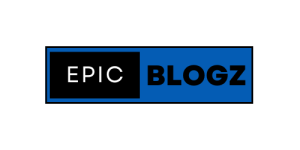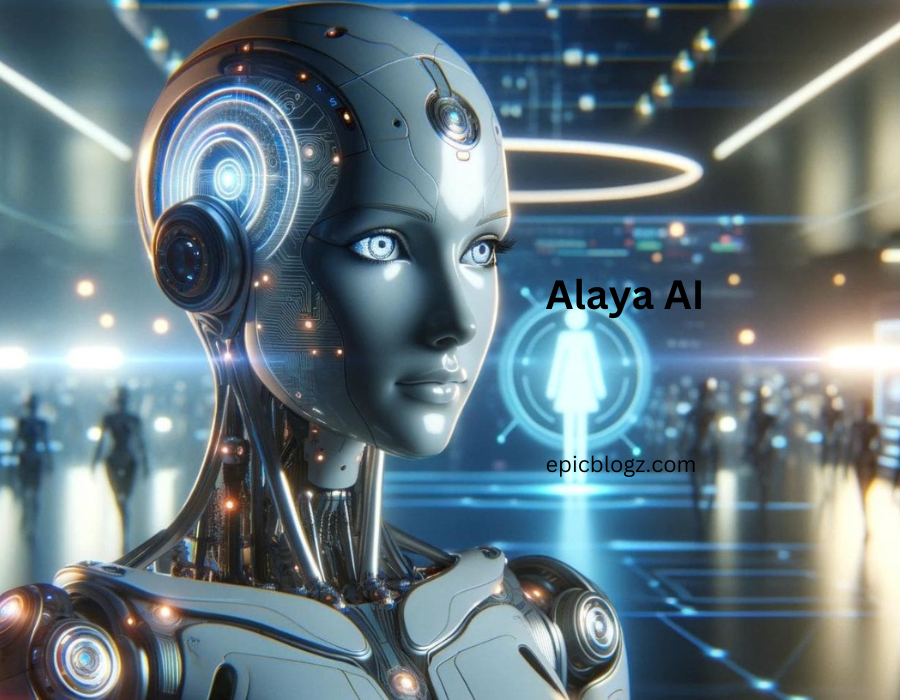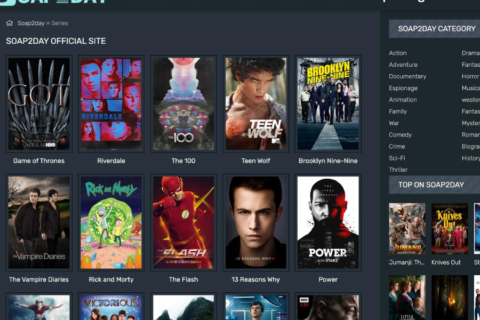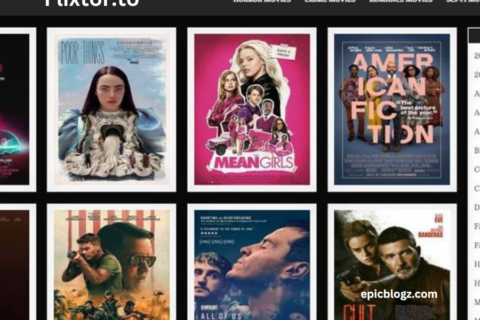Introduction to Alaya AI
Data is often described as the lifeblood of the digital age. Communities, businesses, and governments rely on data to make informed decisions, create impactful policies, and drive innovation. Yet, despite the volume of data generated, the challenge remains in how to share, manage, and leverage this data effectively. Enter Alaya AI, a transformative solution designed to unlock the power of data sharing within communities and organizations. Alaya AI reshapes how data is distributed, enabling stakeholders to collaborate more effectively, ensure transparency, and empower individuals.
The Challenge of Traditional Data Sharing
Before diving into how Alaya AI addresses the challenges of data sharing, it’s essential to understand the hurdles inherent in traditional data management systems. Today’s data-sharing methods are often fragmented, inefficient, and lack transparency. Key challenges include:
- Data silos: Organizations or sectors frequently operate in isolated “silos,” which prevents the free flow of information across departments or entities. This isolation leads to a lack of holistic insight and hampers innovation.
- Inefficient collaboration: Without streamlined systems for sharing data, collaboration among stakeholders, whether they are public institutions, private companies, or citizens, is often disjointed. This results in duplicated efforts, slower progress, and missed opportunities.
- Trust and privacy concerns: Sharing sensitive or personal data is fraught with concerns around privacy, security, and data misuse. Traditional methods may not always offer the level of protection needed to guarantee trust between entities.
- Limited accessibility: Communities and individuals often struggle to access useful data due to technological barriers, lack of expertise, or control held by specific organizations. This limits their ability to contribute to decision-making or understand the full picture.
These challenges hinder the effectiveness of data-driven initiatives, resulting in inefficiencies, wasted resources, and missed opportunities for growth and innovation.
How Alaya AI Revolutionizes Data Sharing
Alaya AI takes these data-sharing roadblocks and transforms them into opportunities for collaboration, transparency, and empowerment. The platform offers cutting-edge solutions that streamline how data is shared, making it more accessible, secure, and beneficial for all parties involved.
1. Breaking Down Data Silos
One of Alaya AI’s core missions is to eliminate data silos by enabling seamless communication and sharing between disparate systems. Alaya AI creates a collaborative network where data can be shared in real-time across organizations, governments, and even different communities. This interconnectivity allows data to flow more freely, resulting in deeper insights, more innovative solutions, and a more comprehensive understanding of issues.
By uniting data sources, Alaya AI empowers users to view the “big picture,” leading to more informed decision-making and creating opportunities for cross-sector collaboration. Whether it’s healthcare, education, or public infrastructure, the potential for holistic insight grows exponentially as more data is shared.
2. Ensuring Data Privacy and Trust with Advanced Security Measures
A critical aspect of Alaya AI’s transformation of data sharing is its focus on privacy and trust. With increasing concerns over data breaches and misuse, Alaya AI incorporates advanced encryption and security protocols to ensure data integrity and confidentiality.
Privacy-preserving technology: Alaya AI leverages techniques such as differential privacy, which allows for data analysis without compromising individual privacy. In this system, data can be shared in aggregated or anonymized forms, reducing the risk of exposure while maintaining the integrity of the information.
Blockchain integration: Alaya AI enhances data sharing security by integrating blockchain technology. Blockchain provides a decentralized, immutable ledger of all transactions or data exchanges, ensuring that no information can be altered without detection. This creates a foundation of trust among users, fostering a more open and cooperative data-sharing environment.
By addressing privacy concerns, Alaya AI instills confidence in communities and organizations, encouraging greater participation in data sharing initiatives.
3. Facilitating Collaboration and Open Innovation
Collaboration is key to innovation, and Alaya AI is designed to facilitate partnerships between diverse stakeholders. The platform enables real-time data sharing between different entities, allowing communities, governments, and organizations to collaborate more effectively.
Imagine a scenario where public health officials, local governments, and hospitals need to respond to a healthcare crisis. With Alaya AI, these entities can share real-time data on patient demographics, resource allocation, and disease spread. This level of collaboration ensures quicker responses, better resource management, and more effective solutions.
Moreover, Alaya AI’s open architecture promotes innovation by enabling developers and researchers to build upon the data shared within the platform. By creating a collaborative ecosystem, Alaya AI opens the door to new applications, insights, and tools that can address complex challenges across sectors.
4. Enhancing Transparency and Accountability
Transparency in data sharing is essential for building trust within communities. Whether it’s sharing information about public expenditures, environmental impact assessments, or the outcomes of social programs, transparency allows citizens to hold governments and organizations accountable.
Alaya AI ensures that data sharing is transparent through its blockchain integration and open data policy. Every data transaction is recorded on the blockchain, making it easily traceable and verifiable. This transparency not only builds trust between entities but also helps in preventing corruption and misuse of data.
For example, municipalities can share real-time data about public spending with their citizens, allowing the public to track where their tax dollars are going. This level of openness encourages a more engaged and informed community, leading to better governance and more responsible use of resources.
Real-World Applications of Alaya AI in Data Sharing
The real power of Alaya AI lies in its practical applications. Across various industries and sectors, Alaya AI is already transforming how data is shared, leading to positive outcomes for communities and organizations alike.
1. Public Health
In the public health sector, the sharing of data is crucial for managing disease outbreaks, allocating resources, and improving patient care. Alaya AI helps public health agencies and healthcare providers collaborate more effectively by sharing real-time data on patient outcomes, resource availability, and health trends.
During health crises, such as the COVID-19 pandemic, the ability to share accurate, real-time data was a critical factor in managing outbreaks. With Alaya AI, public health officials can better track disease spread, allocate hospital beds, and ensure that communities have the necessary resources.
2. Smart Cities and Urban Planning
Cities generate vast amounts of data every day, from traffic patterns to energy consumption. Alaya AI enables cities to share this data across different departments, from transportation to public safety, creating more efficient, sustainable, and livable urban environments.
By breaking down the barriers between departments. Alaya AI helps cities become smarter and more responsive to the needs of their citizens.
3. Education and Research
Educational institutions are often treasure troves of valuable data, from student performance metrics to groundbreaking research findings. However, this data is often trapped within individual institutions or departments, limiting its broader impact.
With Alaya AI, schools, universities, and research organizations can share data more freely, fostering collaboration and accelerating innovation. Researchers working on similar projects across different institutions can pool their data to gain new insights, while educational institutions can share best practices to improve student outcomes.
4. Environmental Sustainability
Environmental challenges, such as climate change and biodiversity loss, require coordinated action across multiple sectors. Alaya AI plays a critical role in facilitating the sharing of environmental data between governments, NGOs, and private companies.
For example, conservation organizations can share data on endangered species populations with local governments to inform conservation policies. Similarly, businesses can share their carbon footprint data with regulatory bodies, ensuring compliance with environmental standards and helping to create a more sustainable future.
Alaya AI’s ability to unite disparate data sources allows for a more comprehensive approach to addressing global environmental challenges.
How Alaya AI Empowers Communities
At its core, Alaya AI is about community empowerment. By transforming data sharing, it provides communities with the tools they need to participate more actively in decision-making processes, hold institutions accountable, and drive positive change.
Community participation: Alaya AI’s user-friendly interface ensures that even individuals with limited technical expertise can access and contribute to data-sharing initiatives. By making data more accessible, Alaya AI democratizes information, allowing citizens to play a more active role in their communities.
Informed decision-making: Communities can use shared data to make informed decisions about local issues, such as public safety, environmental conservation, and infrastructure development. With real-time data at their fingertips, citizens and local organizations can engage in more meaningful discussions and advocacy.
Building trust: Alaya AI’s transparent data-sharing practices build trust between communities and the organizations or governments that serve them.
Conclusion
As the world becomes increasingly data-driven, the ability to share information effectively and securely has never been more important. Alaya AI is a game-changer in this space, transforming how communities, governments, and organizations share data. By breaking down silos, ensuring privacy and trust, promoting collaboration, and fostering transparency, Alaya AI empowers communities to take control of their data and use it to drive positive change.
Whether it’s improving public health, advancing smart city initiatives, or driving environmental sustainability, Alaya AI has the potential to unlock the full power of data sharing, creating a more connected, transparent, and empowered world.
Now is the time to embrace this transformation. Unlock the power of your community through Alaya AI and discover a future where data sharing leads to progress, innovation, and collective empowerment.
ALSO READ: SpeedyShort.com: Say Goodbye to Long URLs!
FAQs
What is Alaya AI?
Alaya AI is a decentralized artificial intelligence platform that integrates data collection, annotation, and social commerce. It leverages blockchain technology to ensure transparency and security while allowing users to contribute data and earn rewards.
How does Alaya AI ensure data quality and accuracy?
Alaya AI employs a community-driven model that utilizes swarm intelligence to aggregate contributions from diverse users. This collaborative approach enhances the quality of the data collected, while advanced annotation tools help ensure accurate labeling for AI training.
What are ALA tokens, and how do they work?
ALA tokens are the cryptocurrency used within the Alaya AI platform to incentivize users for their contributions, such as data labeling and validation.
Who can benefit from using it?
Businesses and organizations across various industries that require high-quality training data for AI models can benefit from Alaya AI. The platform is particularly useful for companies looking to streamline their data collection processes.







